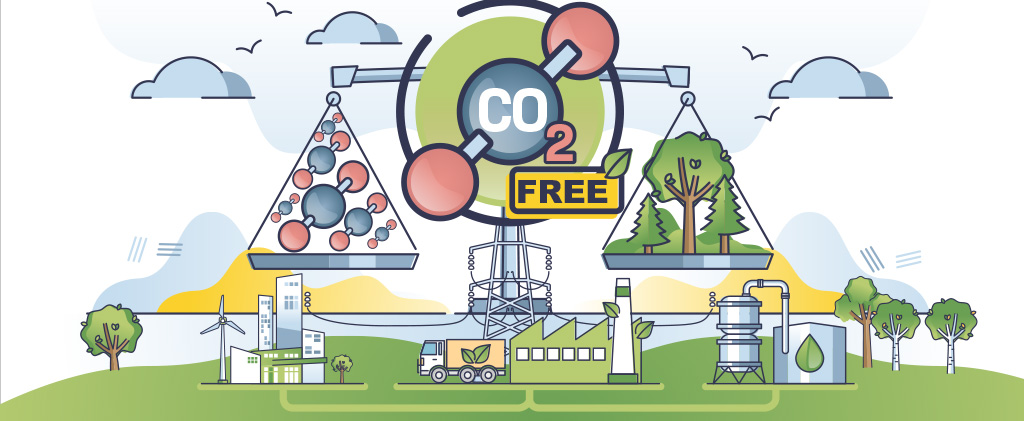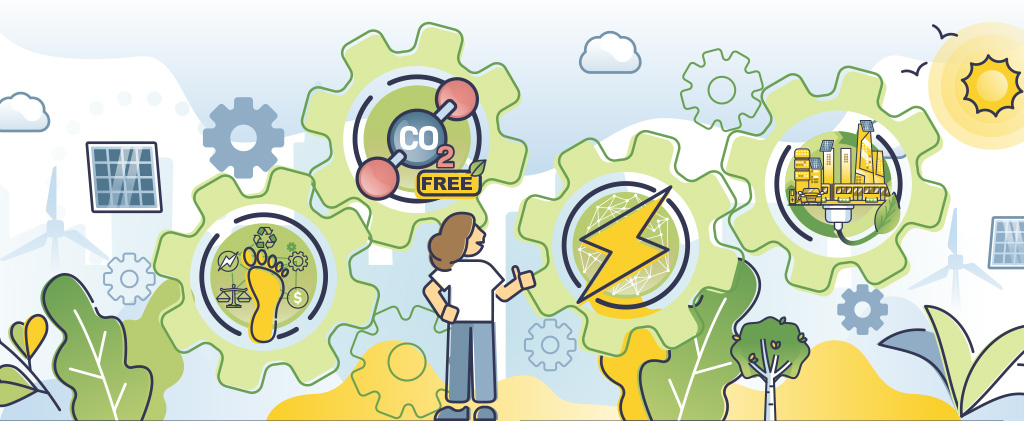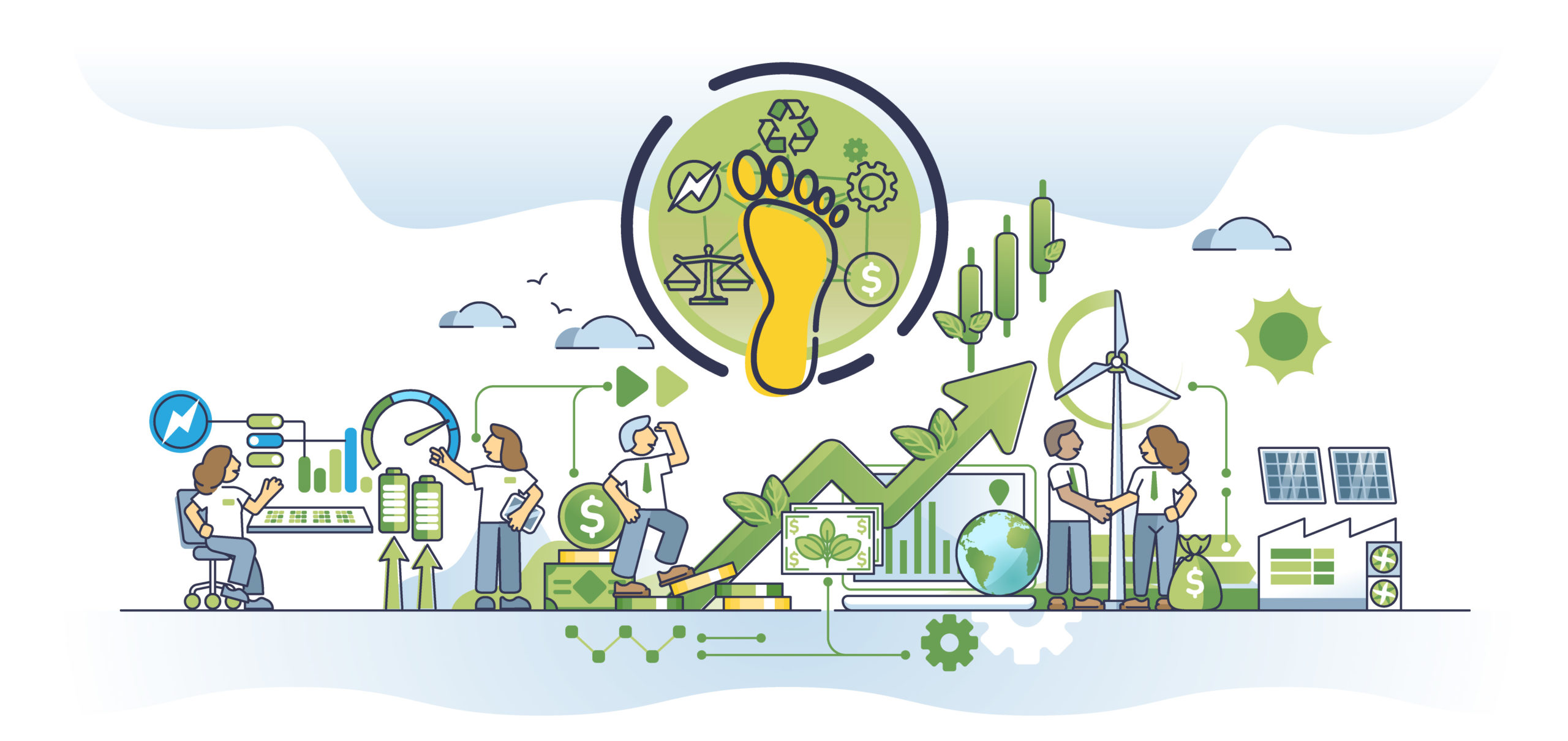

Eager to learn more about the program? We invite you to join us for a series of webinars exploring Industry Challenges and potential CO2 Emission Solutions. Register for the webinar here
Target audience
Industry and energy professionals seeking to acquire the skills and tools to build sustainable energy systems and accelerate the energy transition.
A good technical background in engineering and/or mathematics is essential as advanced data analysis and modeling techniques are widely used in the programme.
Introduction
Now is the time to get your business ready for Net-Zero. As an organisation (from the public or private sector), are you ready to safeguard your competitiveness in the upcoming low-carbon economy?
Reducing CO2 emissions and optimising energy systems without compromising competitiveness is a major challenge for many industries. Given the long and heavy investment cycles involved, there is an urgent need for industrial companies to start transforming their operations by applying sustainable engineering practices today. Energy efficiency, renewable energy integration, carbon capture and storage, hydrogen use, advanced conversion technologies, water-waste-energy nexus models, urban energy system optimisation are just a few of the options available. However, a holistic approach is essential to achieve symbiosis between production sites and the circular economy. How can your company develop a systemic approach to energy efficiency and decarbonisation of industrial processes?
The Diploma of Advanced Studies (DAS) in Sustainable Energy Systems Engineering: Industry Decarbonisation is a unique opportunity to get ready for Net-Zero. This innovative, hands-on programme enables participants to actively engage in the transformation of an organisation’s existing industrial processes, through the implementation of decarbonisation solutions and process efficiency improvements. After completing the Certificate of Advanced Studies (CAS) in Industry Decarbonisation programme, the participant carries out an industrial project, ideally within their employer’s organisation, while benefiting from the expert advice of EPFL and HES-SO professors – a true win-win project for companies investing in upskilling their workforce.
Objectives
- Be able to conduct energy audits that analyze and measure the energetics of a production process, considering thermodynamical, economical and environmental impacts
- Identify options for decarbonisation and process efficiency improvement as, technological changes, CO2 capture & sequestration, heat recovery & valorisation, optimisation of energy supply, renewable energy integration, waste-water-energy management
- Acquire tools and methods for implementing decarbonisation solutions in industrial processes
- Adopt a holistic approach integrating the company’s industrial process with the main energy infrastructure and the surrounding industrial and urban system
- Carry out an industrial energy transition project
Cursus & Certification
The Diploma of Advanced Studies (DAS) in Sustainable Energy Systems Engineering: Industry Decarbonisation combines face-to-face and synchronous online teaching and consists of:
- Completion of the CAS in Sustainable Energy Systems Engineering: Industry Decarbonisation (6 months)
- Industrial project (min. of 600h)
- Report production
- Individual oral assessment
Title obtained: Diploma of Advanced Studies (DAS) in Sustainable Energy Systems Engineering: Industry Decarbonisation delivered by the EPFL, 30 ECTS credits. Consult the Academic Regulations
ProgramME
Step 1: CAS PROGRAMME & PROJECT DEFINITION
- Completion of the CAS in Sustainable Energy Systems Engineering: Industry Decarbonisation
February to July 2025 - Industrial project topic definition, e.g: Decarbonising options in the fine chemical industry / Decarbonisation roadmap for a dairy production site / A supermarket as a net zero renewable energy hub / Waste management plant in the perspective of the energy transition, etc.
- Setting up the framework for project implementation within the organisation
——————————————–
Step 2: INDUSTRIAL PROJECT
The industrial project represents a minimum of 600 hours of personal work carried out within a company (estimated completion time of 6 to 8 months at 50% activity rate on the project).
- Completion of a personal industrial project, ideally within the organisation of one’s own employer, that demonstrates the participant’s ability to structure and manage an industrial energy transition project.
- Supervision and advice from academic experts in the field
- Evaluation: Report and oral assessment
Industrial Projects Call for Proposals
If your organisation (public or private) is looking to implement an industrial energy transition project but lacks the necessary resources, you are in the right place. Sponsor and host a participant to lead an industrial project within your company! Contact us for more information:
sustainable.energy@epfl.ch
Organisation
- Industrial Process and Energy Systems Engineering (IPESE), School of Engineering (STI), EPFL, Switzerland
- Institute of Sustainable Energy, HES-SO Valais-Wallis, Switzerland
- Energy Center (CEN), EPFL, Switzerland
Programme Academic Directors
- Prof François Maréchal, Head of Industrial Process and Energy Systems Engineering group, EPFL
- Prof. Manuele Margni, Institute of Sustainable Energy, HES-SO Valais-Wallis
Steering Committee
- Prof. François Maréchal, Head of Industrial Process and Energy Systems Engineering group, EPFL
- Prof. Manuele Margni, Institute of Sustainable Energy, HES-SO Valais-Wallis
- Prof. Gaëtan Cherix, Director of the School of Engineering (HEI), HES-SO Valais-Wallis
- Prof. Sophia Haussener, Head of the Laboratory of Renewable Energy Science and Engineering, EPFL
- Dr. Yasmine Calisesi, Executive Director of the EPFL Energy Center
- Rigas Hadzilacos, Deputy Executive Director of Formation Continue UNIL-EPFL
DAS Academic Leadership
- Prof. François Maréchal, EPFL
- Prof. Jessen Page, HES-SO
Contact
For academic questions :
Dr. Jean-Marie Fürbringer, Program Executive Director of MAS, DAS and CAS Sustainable Energy Systems Engineering
sustainable.energy@epfl.ch
Practical Information
Course venue
- Online
- Onsite: Energypolis, Sion, Switzerland
Course fee
20’000.– Swiss francs*
CAS fees and industrial project supervision included
* Based on the price of the last edition.
Enrol
Admission requirements
EPF or HES Master’s degree, or another degree (in a field related to the program) deemed equivalent by the Steering Committee*
*Exceptionally, candidates who do not meet the above requirements may be considered for admission, provided they can demonstrate a sufficient level of qualification with another engineering degree in a relevant domain and at least 5 years’ professional experience in the field
Candidates interested in completing the DAS but uncertain about where to undertake their industrial project at the time of enrolment, should register for the CAS programme. They have the flexibility to secure an internship position at a later stage. Whenever possible, the programme organisers will facilitate connections with companies seeking interns.
Registration
Admission on file to submit to Formation Continue UNIL-EPFL. Please join to the registration form:
- Letter of motivation
- CV
- Copies of diplomas obtained
Registration deadline
This course is full. Registrations are closed.
Be alerted as soon as registration opens for the next edition of this course, register on our Stay Informed platform.
In the media
- Energies go Green, article (in English and French) published in the EPFL magazine “Dimension” on March 14, 2024



